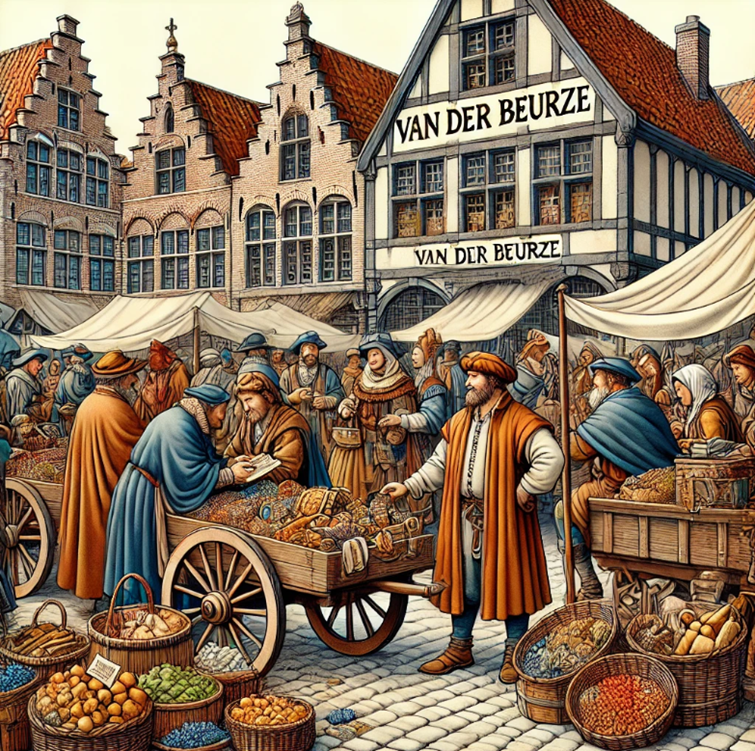The First Stock Exchange
The history of investment and stock exchanges is fascinating because it shows us how humans have sought ways to accumulate wealth and promote trade since ancient times. Although today we think of stock exchanges as sophisticated places filled with screens and constantly changing numbers, it all began in a much simpler way.
The First Investment Market: Bruges and the Merchants
The first form of what we could call a "stock exchange" emerged in Bruges, a city in Belgium, during the 14th century. At that time, merchants from different parts of Europe gathered in the main squares of cities to trade goods, money, and securities. In Bruges, these meetings often took place in front of the house of a family named Van der Beurze, whose name eventually gave rise to the term "stock exchange" that we use today.
In this primitive market, merchants not only exchanged physical goods such as fabrics and spices but also traded "bills of exchange." These were promises of payment representing money, allowing merchants to transfer wealth without having to transport gold or coins, which was risky at the time.
Why Did This Form of Trade Arise?
At that time, international trade was booming. Port cities like Bruges, Venice, and Amsterdam were key hubs where ships loaded with exotic products arrived. Merchants needed a safe and reliable place to negotiate and finance these activities. Thus, the first organized markets were born, the precursors of modern stock exchanges.
The Amsterdam Stock Exchange: The First Official Stock Exchange
Although Bruges laid the foundation, the Amsterdam Stock Exchange, founded in 1602, is considered the first formal stock exchange in the world. It was created to trade shares of the Dutch East India Company, a company that sent ships to Asia to trade spices, fabrics, and other valuable goods.
For the first time in history, people could invest their money in a company by purchasing "shares." These shares represented a small portion of the company, and investors could make money if the company succeeded in its business ventures. This system allowed more people to participate in large-scale commercial activities, driving the development of modern capitalism.
Conclusion
The idea of stock exchanges was born out of the need to facilitate trade and investment in a growing world. From the merchants in Bruges to the founding of the Amsterdam Stock Exchange, these markets have evolved enormously, but their essence remains the same: connecting people who want to invest with those who need capital for their projects.
Today, stock exchanges are fundamental to the global economy. But we must never forget their humble origins in squares and homes where merchants dreamed of a better future.

